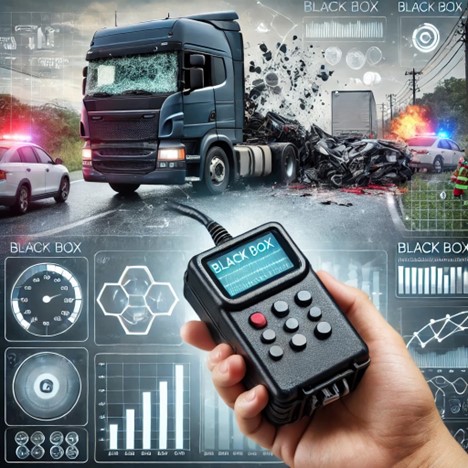Travel Gear
The Black Box: A Truck Component that Knows It All
The Black Box, a crucial component in modern trucks, is vital for legal and safety matters. It continuously records data related to vehicle performance, speed, and driver behavior, providing essential evidence in the event of accidents. This technology is becoming increasingly significant in Dallas, a North Central Texas city near the Trinity River and 30 miles east of Fort Worth, where its usage is often central to insurance claims and legal investigations. The data retrieved from the black box can help win truck accident claim cases in Dallas.

What Is a Truck’s Black Box?
The black box in a truck is a device designed to record crucial data about the vehicle’s operation. In contrast to the black boxes used in the aviation sector, truck EDRs are mainly concerned with the vehicle’s performance, documenting information including engine performance, throttle position, brake usage, and speed. Some advanced systems also monitor driver behavior, seatbelt usage, and GPS location. These devices are not just optional add-ons; many commercial trucks are required by law to include them. Federal regulations ensure that this technology remains consistent across vehicles, improving the ability of investigators to rely on the data.
Legal Implications of Black Box Data
A Dallas truck accident attorney is essential in using black box data to reconstruct events preceding a collision. This data provides crucial information like speed, braking patterns, and adherence to rest periods, helping to determine fault.
Attorneys, whether representing victims or defendants, rely on this evidence to support claims of negligence or innocence. Accessing black box data requires overcoming legal challenges, including obtaining consent from the truck’s owner and ensuring the data meets the court’s standards for relevance and reliability in litigation.
Federal and State Regulations in Dallas
Using black boxes in trucks aligns with broader federal requirements, such as those outlined by the Federal Motor Carrier Safety Administration. These regulations enhance safety by enforcing strict data recording and retention standards. State-specific laws in Texas and Dallas also determine how black box data is utilized in legal disputes. Texas law allows parties in civil cases to subpoena EDR data, provided it is relevant to the case. Failure to preserve this data after an incident may result in legal penalties or adverse consequences during litigation.
Challenges Surrounding Data Ownership and Privacy
The black box raises questions about data ownership and privacy despite its usefulness. The trucking company owns the data, which can lead to disputes when external parties seek access. This lack of direct control by drivers has prompted calls for clearer laws on data access rights.
The black box’s ability to track driver behavior amplifies privacy concerns. Balancing the need for accountability with individual rights remains an ongoing debate in Dallas’s trucking community.
Final Thoughts
The black box in trucks is far more than a passive recorder. It plays a key role in legal investigations, regulatory compliance, and safety improvements. Despite its undeniable benefits, the technology introduces data privacy, ownership, and legal admissibility complexities.
As the trucking industry in Dallas continues to evolve, the black box will remain at the forefront of discussions about accountability and safety on the road. Its ability to “know it all” ensures that crucial details are never lost, providing a clearer picture when accidents or disputes arise.
